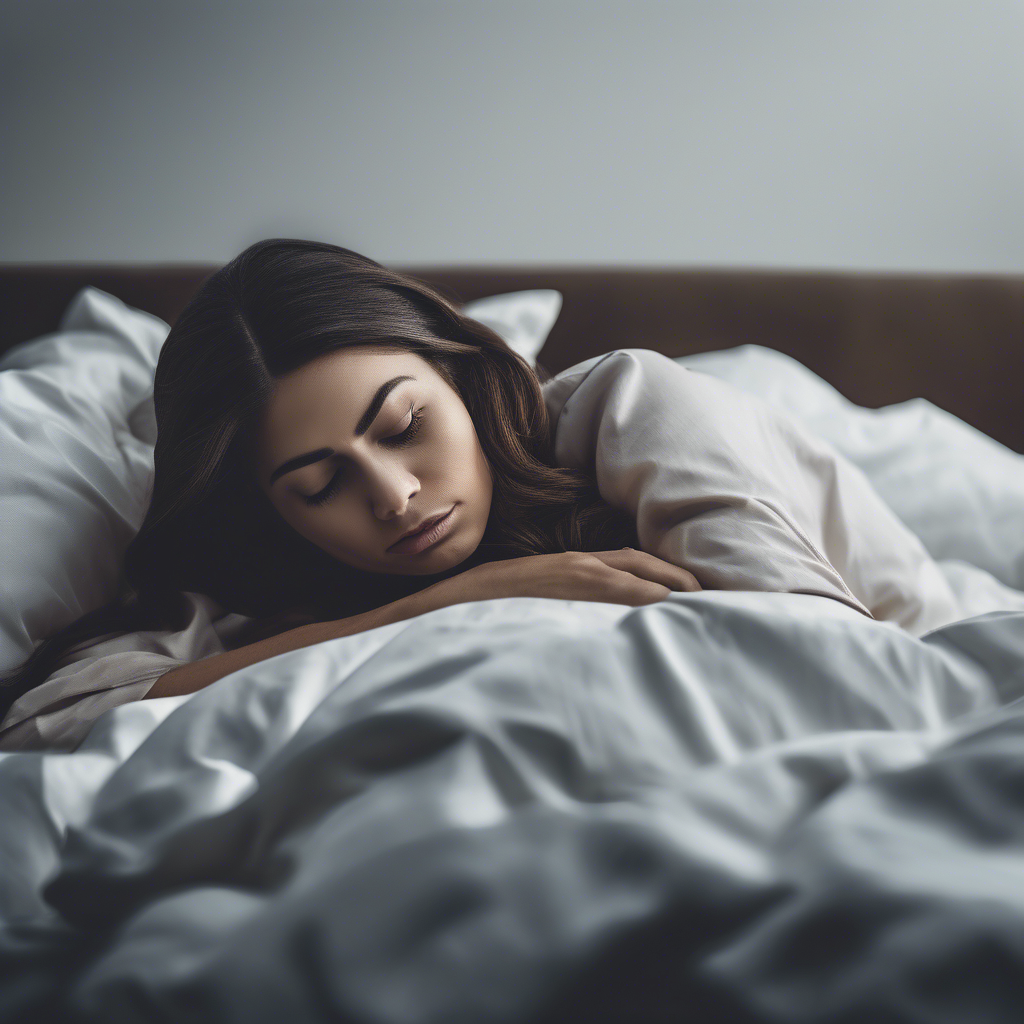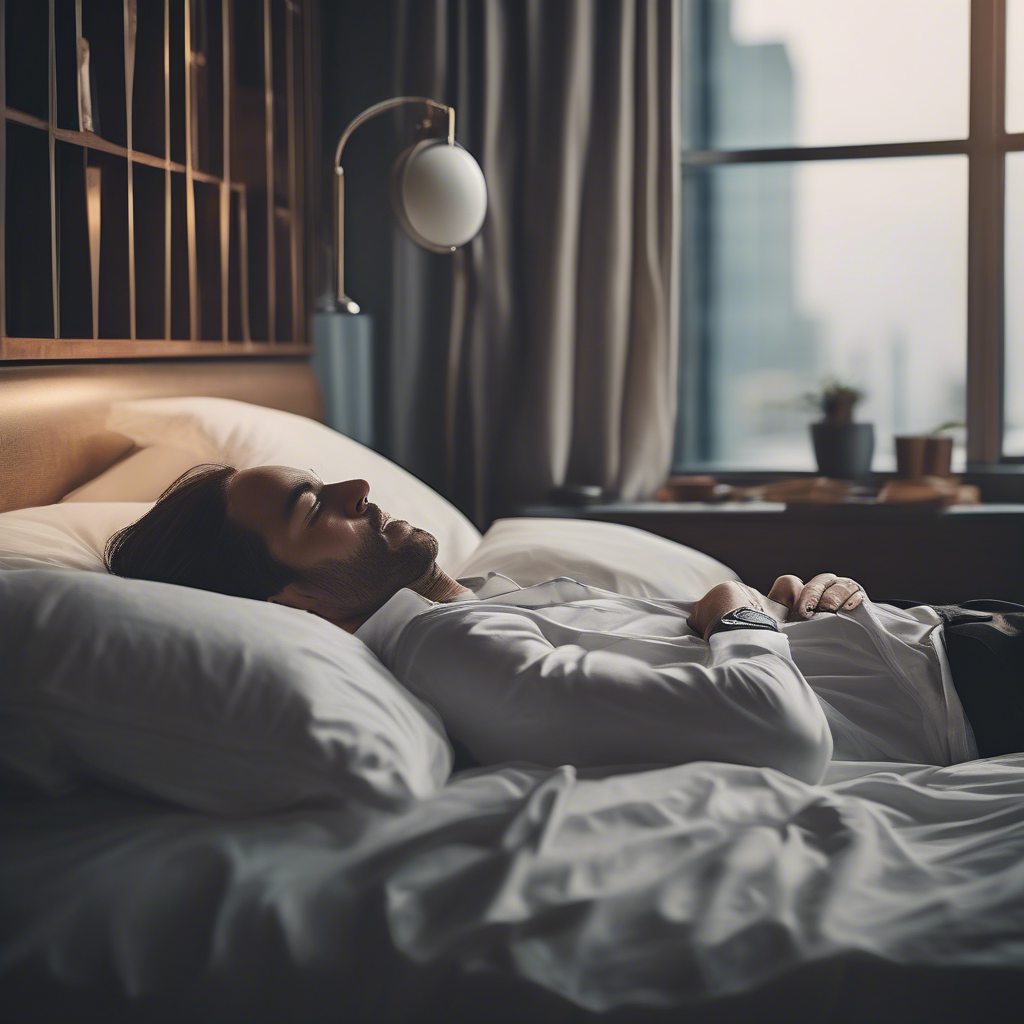How to Sleep Better: Expert Tips and Tricks

In today’s fast-paced world, quality sleep often seems like a luxury rather than a necessity. Yet, the importance of good sleep cannot be overstated. It is as vital as a balanced diet and regular exercise, influencing every aspect of our lives from mental clarity to physical health. With the rise of sleep disorders and stress-related insomnia, understanding how to sleep better has never been more crucial.
This guide dives deep into expert sleep advice to help you improve sleep quality. Whether you’re dealing with sleepless nights or simply looking to enhance your nightly rest, you will discover actionable sleep improvement techniques. Explore better sleep habits, learn about effective sleep enhancement strategies, and embrace the journey to a more restful night.
Understanding Sleep and Its Importance
Sleep is not just a period of rest but a dynamic state of recovery and rejuvenation. According to the National Sleep Foundation, adults need 7-9 hours of sleep each night to function optimally. Yet, CDC reports that over 35% of adults in the U.S. fail to achieve this threshold regularly. This lack of sleep can contribute to chronic health issues, affecting productivity and overall well-being.
The stages of sleep – REM and non-REM – play distinct roles in our health. REM sleep is crucial for cognitive functions like memory consolidation and mood regulation, while non-REM sleep facilitates physical recovery and growth. Disruptions in these stages can lead to significant impairments. Understanding these processes helps in adopting sleep improvement techniques that target specific sleep stages.
Real-world examples highlight the impact of sleep on daily life. Consider the case of a tech executive who managed chronic insomnia by adjusting her sleep environment and routine. Her story illustrates how simple changes, backed by scientific understanding, can lead to significant improvements in sleep quality and overall life satisfaction.
Creating a Sleep-Conducive Environment
Your bedroom environment plays a critical role in determining how well you sleep. A clutter-free, calming space can facilitate a seamless transition into sleep. Experts recommend keeping the bedroom cool, dark, and quiet. The ideal temperature is around 60-67 degrees Fahrenheit, as a cooler environment can promote deeper sleep.
Investing in a good mattress and pillows can also enhance sleep quality. A study by the Better Sleep Council highlights that 73% of people sleep better on a comfortable mattress. Similarly, blackout curtains can block out disruptive light, while white noise machines can mask ambient sounds, creating a more serene sleep environment.
Limiting Screen Time
Exposure to screens before bedtime can interfere with your body’s natural sleep-wake cycle. The blue light emitted by phones and tablets suppresses melatonin production, making it harder to fall asleep. Implementing a digital curfew – avoiding screens at least an hour before bed – is a practical tip for a balanced lifestyle and better sleep habits.
Establishing a Consistent Sleep Routine
A regular sleep schedule is one of the most effective sleep enhancement strategies. Going to bed and waking up at the same time daily, even on weekends, reinforces your body’s natural circadian rhythm. This biological clock governs sleep patterns, and maintaining consistency can lead to improved sleep quality.
Incorporating relaxing pre-sleep rituals can signal your body that it’s time to wind down. Activities such as reading, meditating, or taking a warm bath can be soothing. Real-world examples include busy professionals who find that dedicating 30 minutes to relaxation before bed significantly reduces stress and facilitates deeper sleep.
Additionally, being mindful of your diet and exercise can enhance your sleep routine. Consuming caffeine or heavy meals close to bedtime can disrupt sleep, while regular physical activity can promote faster sleep onset and increased duration.
To complement these insights, consider watching our expert-curated video on sleep optimization techniques. This visual guide provides practical demonstrations and further elucidates the concepts discussed, offering a holistic approach to achieving better sleep.

Frequently Asked Questions
What are the best sleep positions for quality rest?
The optimal sleep position varies per individual but generally, sleeping on your back or side is recommended. These positions support spinal alignment and reduce pressure on joints. For example, placing a pillow between your knees while on your side can alleviate back pain, enhancing comfort and sleep quality.
How does diet affect sleep quality?
Diet plays a significant role in sleep quality. Consuming caffeine or sugar close to bedtime can lead to restlessness. On the contrary, foods rich in tryptophan, like turkey and nuts, can promote sleep. A balanced diet is integral to better sleep habits and overall health.
Can exercise improve my sleep?
Yes, regular exercise can significantly improve sleep quality by reducing stress and anxiety levels. Engaging in physical activity during the day helps regulate the body’s internal clock and can lead to longer, deeper sleep. However, intense workouts close to bedtime should be avoided as they may be stimulating.
How do stress and anxiety affect sleep?
Stress and anxiety can severely impact sleep by making it difficult to fall and stay asleep. Implementing relaxation techniques, such as deep breathing or mindfulness, can mitigate these effects. For instance, a brief meditation session before bed can reduce stress, facilitating a smoother transition into sleep.
What can I do if I wake up in the middle of the night?
If you wake up during the night, try not to stress about it. Engage in a quiet activity like reading until you feel sleepy again. Avoid screens and bright light, which can disrupt your circadian rhythm. This approach helps in maintaining a calm state conducive to returning to sleep.
Conclusion
Achieving better sleep is a journey that requires adopting various expert sleep advice and strategies. From understanding the complexities of sleep stages to creating a conducive environment, these practical tips for a balanced lifestyle can lead to significant improvements in sleep quality.
Implementing a consistent sleep routine and adjusting daily habits can further enhance your sleep experience. As you embark on this journey, remember that small, incremental changes can yield substantial benefits, leading to a more restful and rejuvenating sleep.
Take action today by incorporating these sleep improvement techniques into your daily life. Better sleep habits are the foundation of a healthier, more productive lifestyle. Explore our additional resources to continue your journey toward optimal sleep health.
Further Reading
- The Impact of Diet on Sleep: A Comprehensive Guide
- Mindfulness Techniques for Stress Reduction and Better Sleep
- Creating the Perfect Sleep Environment: Tips and Tricks



